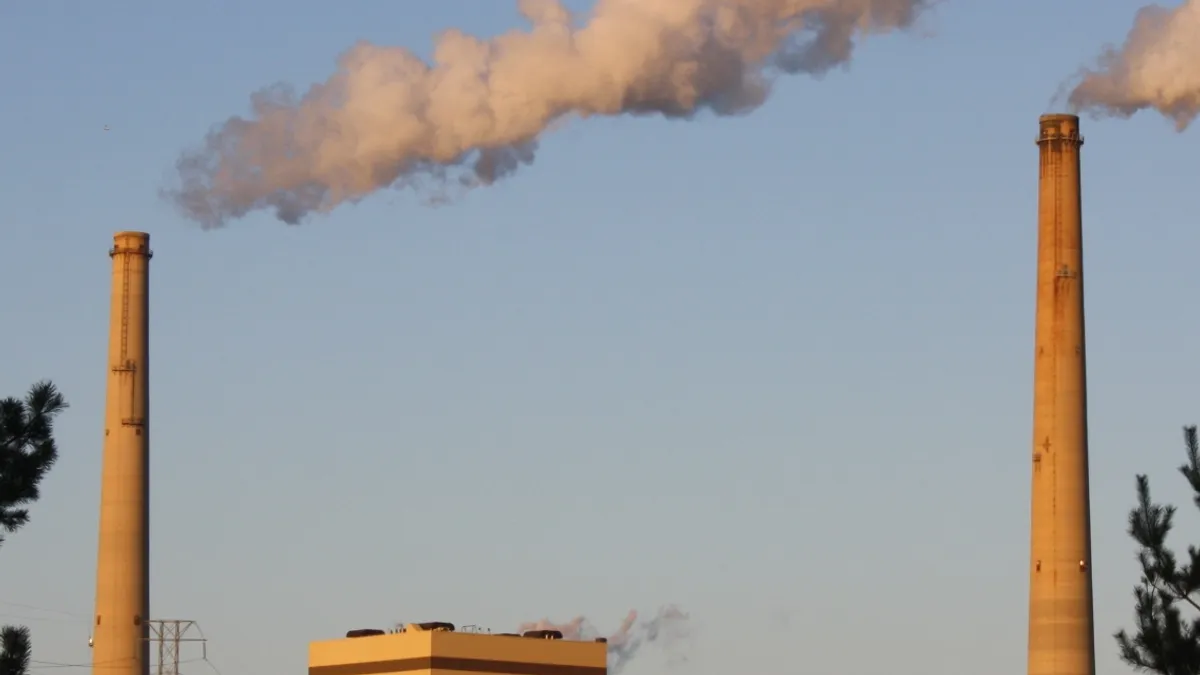Dive Brief:
-
The majority of coal-fired power in the Midcontinent Independent System Operator (MISO) was self-scheduled and 12% was dispatched uneconomically from 2017 to 2019, according to an April analysis from the grid operator.
-
Approximately 76% of coal-fired power in the market was self-scheduled and dispatched economically during that time period, while the remaining 12% was economically committed and economically dispatched.
-
MISO's numbers largely support assertions made by the Union of Concerned Scientists and other advocacy groups, which have found that "bad actors" are running their coal plants uneconomically, and costing ratepayers billions of dollars, Joe Daniel, senior energy analyst at UCS told Utility Dive.
Dive Insight:
Utilities in the MISO market have been under increased scrutiny over the past few years from regulators and advocacy groups trying to understand how much money the market could potentially be losing over self-scheduling practices.
Sierra Club previously estimated that self-scheduling practices have cost MISO $1.29 billion in 2017 alone and that the practice as a whole cost ratepayers across markets $3.5 billion from 2015 to 2017. MISO was unable to comment by publication time on how much uneconomic commitments may have cost in their 2017-2019 analysis.
Self-committing resources is defended by utilities as a necessary practice to avoid high shutoff and startup costs, particularly for less flexible resources like coal, which aren't able to cycle on and off easily. The problem comes when self-committed units are dispatched to the market uneconomically, bumping other, cheaper resources out of line.
"The vast majority of all self-committed coal generation in MISO is actually dispatched economically — meaning it is the lowest-cost resource option that MISO markets have available at the time to serve load," MISO noted in its report.
UCS, Sierra Club and other groups have always agreed with this, said Daniel. The larger issue is what the plants that are operating uneconomically are costing ratepayers.
"It's not that all coal plants are uneconomically self-committing all the time, it's that some coal plants are uneconomically [self-committing] all the time," Daniel said. "The vast majority of losses are concentrated on a handful of bad actors. And ... the customers for those bad actors end up paying the price."
The problematic facilities tend to be operated by vertically-integrated utilities who are able to recover market losses incurred by these plants through ratepayers, Daniel noted. Previous research has found the issue to be almost exclusively contained within rate-regulated utilities.
MISO also found that 88% of coal plants in its market are dispatched through self-scheduling. That means the vast majority of plants are operating out of merit order, which can incur severe losses over shorter periods of time, Jeremy Fisher, senior strategy and technical advisor at the Sierra Club's environmental law program told Utility Dive.
For example, in March, MISO saw "record low" energy prices, meaning that it was difficult to operate at all without a loss, let alone operate higher-cost coal plants. But 89% of coal plants were still self-scheduled that month, according to MISO's numbers — 16% uneconomically.
"I think that MISO missed the point all together," Fisher said in an email. "It should be deeply concerned that there are coal plants committing out of merit. That large fraction of units at economic minimum can still deeply distort market prices."
"The time period really matters," said Daniel. Even if the same coal units are self-scheduling year over year, the difference of whether they're economically dispatched or not depends on how high or low market prices were during that period. That's why, for example, a coal unit could take substantial losses across a month or several-week period where market prices are low.
Also, take a look at this graph showing that uneconomic coal generation isn't a problem. That red bit isn't a problem? Are you serious? There isn't a single hour in march when there wasn't uneconomic coal operating. That's millions of $'s of customers' money! 8/ pic.twitter.com/O12Bo6UzAV
— Joe Daniel (@electronecon) May 5, 2020
The Southwest Power Pool conducted a similar analysis in December that found self-scheduling practices were suppressing fuel prices by about 7%, or $2/MWh. It also noted the practice is not limited to coal plants. MISO also found in its recent report that 33% of gas-fired power plants in the MISO market were self-scheduled during the month of March and 15% of those units were not economically dispatched, according to MISO.
"I was genuinely surprised by that," said Daniel. "This just further proves that this is not an issue about needing a multi day market, or needing more flexibility, or needing something else. It's just that utilities aren't responding to the price signal of the market."
Fisher, Daniel and others have been pushing regulators to examine these practices more closely to ensure utilities aren't recovering costs they could have avoided by operating their facilities more economically.
Xcel Energy found that electing to economically dispatch its units more frequently rather than self-commit could save ratepayers billions of dollars. And Indiana regulators have opened up a sub-docket to examine the scheduling practices of Duke Energy Indiana more closely.
"Right now, there's almost 30 million unemployed Americans. One in three Americans struggle to pay their electric bills," said Daniel. "Now, more than ever, utilities should be taking advantage of low cost electricity on the open market and state commissions should be carefully scrutinizing cost recovery during this time."
Correction: Utilities in the MISO market rather than the market itself have been under increased regulatory scrutiny.















